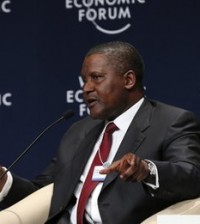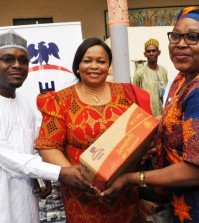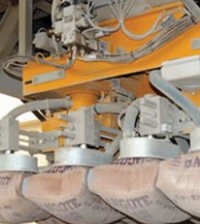Dangote, Chinese, Italian Investors top list of investors in Abuja land swap scheme
DANGOTE Group Plc and Edimo Gruppo of Italy top the list of investors that have expressed interests in the widely acclaimed land swap scheme devised by the Federal Capital Territory Administration (FCTA) to accelerate provision of affordable housing in the Federal Capital Territory.
The strategy (‘land-swap’ model) is to address the accommodation challenge in the territory with a view to enhance the productive capacity of the residents.
The new model offers developers’ opportunity to become partners in the development of the territory and expansion of the city for the benefits of residents. It is a strategy for accelerated provision of the needed infrastructure on identifies districts of agreement between the FCT and financially and technically capable investors in the civil constructions and by extension opening of districts for individual and corporate occupation.
FCT Minister, Senator Bala Mohammed made the disclosure last week during his presentation at the Ministerial Platform which held at the National Press Centre as part of the arrangement to commemorate the 2012 National Democracy Day, also announced that all developers or investors participating in the land swap model of the FCT Administration are to deliver business plans showing their technical capacity, financial capability and managerial competence among others.
The other investors are Adkan Services Nigeria Limited; Ridley Group; Afri-International Projects & Consulting Limited; China Railway Construction Company; Hongye Group; Rosehill Group; Nimec Investment Company limited; Balmus International Limited; First Aries Crude Oil Production; System Properties Development Consortium Limited and Gilmor Engineering Nigeria Limited.
The minister said that each investor is expected to pay a commitment fee N350 million on presentation of business plan to fund physical plan, preliminary design, detailed engineering design, survey plan, feasibility studies, and preparation of agreement.
In addition to that, the investor shall provide detailed design together with infrastructure in the district within a maximum period of 48 months under strict compliance with FCDA specifications and standards for district infrastructure works.
Senator Bala Mohammed stressed that in the event that there is any breach of the special contract, the minister has the power to revoke such grant. According to him, the developer shall not commence real property development or sale of any land in the district until it achieves at least 35 per cent of functional infrastructure works.
He clarified that the funding structure of the project must include an acceptable ratio as follows: debt (50 per cent), equity (15 per cent) and off-plan sales (35 per cent). He said that while the developer is to provide an acceptable performance bond from a reputable bank or insurance company, the FCTA is to retain at least 40 per cent of buildable plots in the district for direct allocation to people.
Speaking on the phase one of Abuja rail mass transit project (Lots 1&3) being executed by China Civil Engineering Construction Corporation (CCECC, Nigeria Ltd, he said it now has a new completion date of 2015.
A statement made available to The Guardian in Abuja said the US$841 million project was awarded on May 27, 2007 but work could not commence until May 2009. The statement quoted the FCT Minister as saying that the progress of work in the project now stands at 22% while it has provided 430 jobs to Nigerians.
He said the FCT Administration is working hard to improve its internal revenue generation through harnessing its untapped potentials. These revenue sources include the Abuja property tax and the anticipated revenue from the proposed park-and-ride project.
He explained that the Administration is also looking forward to generating revenue when legal backing is given to the operations of the Abuja Metropolitan Management Council and the proposed Revenue Board.
“We believe that it is imperative for the FCT to look inward to establish an internal body to raise its IGR. This is with a view to executing its many projects, in order to provide effective services to Nigerians and foreigners alike in FCT.”
Mohammed said another sector where the FCTA has recorded considerable breakthrough, apart from massive road construction all over FCT, is attraction of direct foreign and local investments, totaling over $4.6 billion within two years of his administration.







